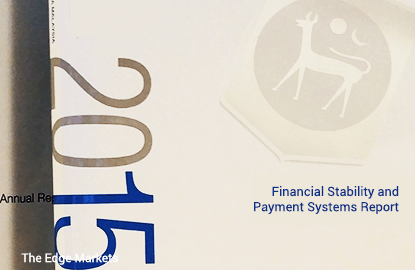
This article first appeared in The Edge Financial Daily, on March 24, 2016.
KUALA LUMPUR: The period of adjustment in consumer spending following the introduction of the goods and services tax (GST) last April could be more prolonged than earlier anticipated, said Bank Negara Malaysia (BNM) in its annual report 2015.
This is due to additional exogenous shocks to the economy from a more subdued global growth, a fall in commodity prices and the depreciation of the ringgit.
These shocks resulted in increased uncertainty and affected business and household sentiments, said the central bank.
“Nevertheless, looking ahead, the impact of GST is expected to [lessen], as continued income growth and stable job market conditions provide fundamental support to household spending. Supporting measures by the government would also provide some impetus to consumption activity,” said BNM.
It is envisaged that private consumption will continue to grow in the near to medium term, albeit at a more moderate rate compared with the average growth of 7.1% for the past five years.
BNM noted that the introduction of the GST at 6% on April 1, 2015, led to a temporary change in household spending patterns, and the adjustment process is still ongoing.
The post-GST period has seen a downward adjustment in consumer spending. Household spending moderated in the second quarter (2Q) of 2015 to 6.4% and reached a trough of 4.1% in 3Q, before recovering to 4.9% in 4Q.
“As expected, the surge in consumption expenditure during the period leading up to the GST introduction was only temporary. As with the experiences of other economies that introduced a new consumption tax, private consumption growth in Malaysia moderated during the quarter of implementation,” said BNM.